LIN通讯
目录
1 PLinApi.h
2 TLINFrameEntry 结构体
3 自定义函数getTLINFrameEntry
4 TLINScheduleSlot 结构体
5 自定义函数 getTLINScheduleSlot
6 自定义LIN_SetScheduleInit函数
7 自定义 LIN_StartSchedule
8 发送函数
9 线程接收函数
1 PLinApi.h
这是官方头文件
///
// PLinApi.h
//
// Definition of the PLIN-API.
//
//
// Principle:
// ~~~~~~~~~~
// The driver supports multiple clients (= Windows or DOS programs
// that communicate with LIN-busses), and multiple LIN-Devices.
// A LIN-Device represents two LIN-Hardware (each channel is a Hardware)
// Multiple 'Clients' can be connected to one or more LIN-Hardware, which
// itself have an interface to a physical LIN-channel of a device.
//
// Features:
// ~~~~~~~~~
// - 1 Client can be connected to multiple Hardware
// - 1 Hardware supports multiple clients
// - When a Client sends a message to a Hardware, the message will not be routed
// to other clients. The response of the Hardware is routed to the connected
// clients depending on the registered Hardware message filter.
// - each Client only receives the messages that pass its acceptance filter
// - each Client has a Receive Queue to buffer received messages
// - hClient: 'Client handle'. This number is used by the driver to
// identify and manage a Client
// - hHw: 'Hardware handle'. This number is used by the driver to
// identify and manage a Hardware
// - all handles are 1-based. 0 = illegal handle
//
// All functions return a value of type TLINError
//
// Authors: K.Wagner / P.Steil
//
// -----------------------------------------------------------------------
// Copyright (C) 2008-2019 by PEAK-System Technik GmbH, Darmstadt/Germany
// -----------------------------------------------------------------------
//
// Last Change: 2019.02.08
///#ifndef __LINAPIH__
#define __LINAPIH__#include <windows.h>#ifdef __cplusplus
extern "C" {
#endif// Handle types
//
typedef BYTE HLINCLIENT; // Client Handle
typedef WORD HLINHW; // Hardware Handle// Invalid Handle values
//
#define INVALID_LIN_HANDLE 0 // Invalid value for all LIN handles (Client, Hardware)// Hardware Types
//
#define LIN_HW_TYPE_USB 1 // LIN USB type // DEPRECATED
#define LIN_HW_TYPE_USB_PRO 1 // PCAN-USB Pro LIN type
#define LIN_HW_TYPE_USB_PRO_FD 2 // PCAN-USB Pro FD LIN type
#define LIN_HW_TYPE_PLIN_USB 3 // PLIN-USB type// Minimum and Maximum values
//
#define LIN_MAX_FRAME_ID 63 // Maximum allowed Frame ID (0x3F)
#define LIN_MAX_SCHEDULES 8 // Maximum allowed Schedules per Hardware
#define LIN_MIN_SCHEDULE_NUMBER 0 // Minimum Schedule number
#define LIN_MAX_SCHEDULE_NUMBER 7 // Maximum Schedule number
#define LIN_MAX_SCHEDULE_SLOTS 256 // Maximum allowed Schedule slots per Hardware
#define LIN_MIN_BAUDRATE 1000 // Minimum LIN Baudrate
#define LIN_MAX_BAUDRATE 20000 // Maximum LIN Baudrate
#define LIN_MAX_NAME_LENGTH 48 // Maximum number of bytes for Name / ID of a Hardware or Client
#define LIN_MAX_USER_DATA 24 // Maximum number of bytes that a user can read/write on a Hardware
#define LIN_MIN_BREAK_LENGTH 13 // Minimum number of bits that can be used as break field in a LIN frame
#define LIN_MAX_BREAK_LENGTH 32 // Maximum number of bits that can be used as break field in a LIN frame
#define LIN_MAX_RCV_QUEUE_COUNT 65535 // Maximum number of LIN frames that can be stored in the reception queue of a client// Frame flags for LIN Frame Entries
//
#define FRAME_FLAG_RESPONSE_ENABLE 0x1 // Slave Enable Publisher Response
#define FRAME_FLAG_SINGLE_SHOT 0x2 // Slave Publisher Single shot
#define FRAME_FLAG_IGNORE_INIT_DATA 0x4 // Ignore InitialData on set frame entry// Error flags for LIN Rcv Msgs
//
#define MSG_ERR_INCONSISTENT_SYNC 0x1 // Error on Synchronization field
#define MSG_ERR_ID_PARITY_BIT0 0x2 // Wrong parity Bit 0
#define MSG_ERR_ID_PARITY_BIT1 0x4 // Wrong parity Bit 1
#define MSG_ERR_SLAVE_NOT_RESPONDING 0x8 // Slave not responding error
#define MSG_ERR_TIMEOUT 0x10 // A timeout was reached
#define MSG_ERR_CHECKSUM 0x20 // Wrong checksum
#define MSG_ERR_GND_SHORT 0x40 // Bus shorted to ground
#define MSG_ERR_VBAT_SHORT 0x80 // Bus shorted to Vbat
#define MSG_ERR_SLOT_DELAY 0x100 // A slot time (delay) was too small
#define MSG_ERR_OTHER_RESPONSE 0x200 // Response was received from other station
#define TLINMsgErrors INT32// Client Parameters (GetClientParam Function)
//
#define clpName 1 // Client Name
#define clpMessagesOnQueue 2 // Unread messages in the Receive Queue
#define clpWindowHandle 3 // Registered windows handle (information purpose)
#define clpConnectedHardware 4 // Handles of the connected Hardware
#define clpTransmittedMessages 5 // Number of transmitted messages
#define clpReceivedMessages 6 // Number of received messages
#define clpReceiveStatusFrames 7 // Status of the property "Status Frames"
#define clpOnReceiveEventHandle 8 // Handle of the Receive event
#define clpOnPluginEventHandle 9 // Handle of the Hardware plug-in event
#define TLINClientParam WORD// Hardware Parameters (GetHardwareParam function)
//
#define hwpName 1 // Hardware / Device Name
#define hwpDeviceNumber 2 // Index of the owner Device
#define hwpChannelNumber 3 // Channel Index on the owner device (0 or 1)
#define hwpConnectedClients 4 // Handles of the connected clients
#define hwpMessageFilter 5 // Message filter
#define hwpBaudrate 6 // Baudrate
#define hwpMode 7 // Master status
#define hwpFirmwareVersion 8 // LIN hardware firmware version (text with the form xx.yy where:// xx = major version. yy = minor version)
#define hwpBufferOverrunCount 9 // Receive Buffer Overrun Counter
#define hwpBossClient 10 // Registered master Client
#define hwpSerialNumber 11 // Serial number of a Hardware
#define hwpVersion 12 // Version of a Hardware
#define hwpType 13 // Type of a Hardware
#define hwpQueueOverrunCount 14 // Receive Queue Buffer Overrun Counter
#define hwpIdNumber 15 // Hardware identification number
#define hwpUserData 16 // User data on a hardware
#define hwpBreakLength 17 // Number of bits used as break field in a LIN frame
#define hwpLinTermination 18 // LIN Termination status
#define hwpFlashMode 19 // Device flash mode for firmware update
#define TLINHardwareParam WORD// Received Message Types
//
#define mstStandard 0 // Standard LIN Message
#define mstBusSleep 1 // Bus Sleep status message
#define mstBusWakeUp 2 // Bus WakeUp status message
#define mstAutobaudrateTimeOut 3 // Auto-baudrate Timeout status message
#define mstAutobaudrateReply 4 // Auto-baudrate Reply status message
#define mstOverrun 5 // Bus overrun status message
#define mstQueueOverrun 6 // Queue overrun status message
#define mstClientQueueOverrun 7 // Client's receive queue overrun status message
#define TLINMsgType BYTE// Schedule Slot Types
//
#define sltUnconditional 0 // Unconditional frame
#define sltEvent 1 // Event frame
#define sltSporadic 2 // Sporadic frame
#define sltMasterRequest 3 // Diagnostic Master Request frame
#define sltSlaveResponse 4 // Diagnostic Slave Response frame
#define TLINSlotType BYTE// Message Direction Types
//
#define dirDisabled 0 // Direction disabled
#define dirPublisher 1 // Direction is Publisher
#define dirSubscriber 2 // Direction is Subscriber
#define dirSubscriberAutoLength 3 // Direction is Subscriber (detect Length)
#define TLINDirection BYTE// Message Checksum Types
//
#define cstCustom 0 // Custom checksum
#define cstClassic 1 // Classic checksum (ver 1.x)
#define cstEnhanced 2 // Enhanced checksum
#define cstAuto 3 // Detect checksum
#define TLINChecksumType BYTE// Hardware Operation Modes
//
#define modNone 0 // Hardware is not initialized
#define modSlave 1 // Hardware working as Slave
#define modMaster 2 // Hardware working as Master
#define TLINHardwareMode BYTE// Hardware Status
//
#define hwsNotInitialized 0 // Hardware is not initialized
#define hwsAutobaudrate 1 // Hardware is detecting the baudrate
#define hwsActive 2 // Hardware (bus) is active
#define hwsSleep 3 // Hardware (bus) is in sleep mode
#define hwsShortGround 6 // Hardware (bus-line) shorted to ground
#define hwsVBatMissing 7 // Hardware (USB adapter) external voltage supply missing
#define TLINHardwareState BYTE// Error Codes
//
#define errOK 0 // No error. Success.
#define errXmtQueueFull 1 // Transmit Queue is full.
#define errIllegalPeriod 2 // Period of time is invalid.
#define errRcvQueueEmpty 3 // Client Receive Queue is empty.
#define errIllegalChecksumType 4 // Checksum type is invalid.
#define errIllegalHardware 5 // Hardware handle is invalid.
#define errIllegalClient 6 // Client handle is invalid.
#define errWrongParameterType 7 // Parameter type is invalid.
#define errWrongParameterValue 8 // Parameter value is invalid.
#define errIllegalDirection 9 // Direction is invalid.
#define errIllegalLength 10 // Length is outside of the valid range.
#define errIllegalBaudrate 11 // Baudrate is outside of the valid range.
#define errIllegalFrameID 12 // ID is outside of the valid range.
#define errBufferInsufficient 13 // Buffer parameter is too small.
#define errIllegalScheduleNo 14 // Scheduler Number is outside of the valid range.
#define errIllegalSlotCount 15 // Slots count is bigger than the actual number of available slots.
#define errIllegalIndex 16 // Array index is outside of the valid range.
#define errIllegalRange 17 // Range of bytes to be updated is invalid.
#define errOutOfResource 1001 // LIN Manager does not have enough resources for the current task.
#define errManagerNotLoaded 1002 // The LIN Device Manager is not running.
#define errManagerNotResponding 1003 // The communication to the LIN Device Manager was interrupted.
#define errMemoryAccess 1004 // A "MemoryAccessViolation" exception occurred within an API method.
#define errNotImplemented 0xFFFE // An API method is not implemented.
#define errUnknown 0xFFFF // An internal error occurred within the LIN Device Manager.
#define TLINError DWORD#pragma pack(push, 8) // These Records are 8-Bytes aligned!// Version Information structure
//
typedef struct { // Size = 8 bytesshort Major; // #0 +0 Major part of a version numbershort Minor; // #1 +2 Minor part of a version numbershort Revision; // #2 +4 Revision part of a version numbershort Build; // #3 +6 Build part of a version number
}TLINVersion;// A LIN Message to be sent
//
typedef struct { // Size = 13 bytesBYTE FrameId; // #0 +0 Frame ID (6 bit) + Parity (2 bit)BYTE Length; // #1 +1 Frame Length (1..8)TLINDirection Direction; // #2 +2 Frame Direction (see Message Direction Types)TLINChecksumType ChecksumType; // #3 +3 Frame Checksum type (see Message Checksum Types)BYTE Data[8]; // #4 +4 Data bytes (0..7)BYTE Checksum; // #5 +12 Frame Checksum
} TLINMsg;// A received LIN Message
//
typedef struct { // Size = 40 bytesTLINMsgType Type; // #0 +0 Frame type (see Received Message Types)BYTE FrameId; // #1 +1 Frame ID (6 bit) + Parity (2 bit)BYTE Length; // #2 +2 Frame Length (1..8)TLINDirection Direction; // #3 +3 Frame Direction (see Message Direction Types)TLINChecksumType ChecksumType; // #4 +4 Frame Checksum type (see Message Checksum Types)BYTE Data[8]; // #5 +5 Data bytes (0..7)BYTE Checksum; // #6 +13 Frame ChecksumTLINMsgErrors ErrorFlags; // #7 +16 Frame error flags (see Error flags for LIN Rcv Msgs)unsigned __int64 TimeStamp; // #8 +24 Timestamp in microsecondsHLINHW hHw; // #9 +32 Handle of the Hardware which received the message
} TLINRcvMsg;// A LIN Frame Entry
//
typedef struct { // Size = 14 bytesBYTE FrameId; // #0 +0 Frame ID (without parity)BYTE Length; // #1 +1 Frame Length (1..8)TLINDirection Direction; // #2 +2 Frame Direction (see Message Direction Types)TLINChecksumType ChecksumType; // #3 +3 Frame Checksum type (see Message Checksum Types)WORD Flags; // #4 +4 Frame flags (see Frame flags for LIN Msgs)BYTE InitialData[8]; // #5 +6 Data bytes (0..7)
} TLINFrameEntry;// A LIN Schedule slot
//
typedef struct { // Size = 20 bytesTLINSlotType Type; // #0 +0 Slot Type (see Schedule Slot Types)WORD Delay; // #1 +2 Slot Delay in MillisecondsBYTE FrameId[8]; // #2 +4 Frame IDs (without parity)BYTE CountResolve; // #3 +12 ID count for sporadic frames// Resolve schedule number for Event framesDWORD Handle; // #4 +16 Slot handle (read-only)
} TLINScheduleSlot;// LIN Status data
//
typedef struct { // Size = 8 bytesTLINHardwareMode Mode; // #0 +0 Node state (see Hardware Operation Modes)TLINHardwareState Status; // #1 +1 Bus state (see Hardware Status)BYTE FreeOnSendQueue; // #2 +2 Count of free places in the Transmit QueueWORD FreeOnSchedulePool; // #3 +4 Free slots in the Schedule pool (see Minimum and Maximum values)WORD ReceiveBufferOverrun; // #4 +6 USB receive buffer overrun counter
} TLINHardwareStatus;#pragma pack(pop)///
// Function prototypes//-----------------------------------------------------------------------------
// LIN_RegisterClient()
// Registers a Client at the LIN Manager. Creates a Client handle and
// allocates the Receive Queue (only one per Client). The hWnd parameter
// can be zero for DOS Box Clients. The Client does not receive any
// messages until LIN_RegisterFrameId() or LIN_SetClientFilter() is called.
//
// Possible DLL interaction errors:
// errManagerNotLoaded, errManagerNotResponding, errMemoryAccess
//
// Possible API errors:
// errWrongParameterValue
//
TLINError __stdcall LIN_RegisterClient (LPSTR strName, // Name of the ClientDWORD hWnd, // Window handle of the Client (only for information purposes)HLINCLIENT *hClient); // Pointer to the Client handle buffer//-----------------------------------------------------------------------------
// LIN_RemoveClient()
// Removes a Client from the Client list of the LIN Manager. Frees all
// resources (receive queues, message counters, etc.). If the Client was
// a Boss-Client for one or more Hardware, the Boss-Client property for
// those Hardware will be set to INVALID_LIN_HANDLE.
//
// Possible DLL interaction errors:
// errManagerNotLoaded, errManagerNotResponding, errMemoryAccess
//
// Possible API errors:
// errWrongParameterValue, errIllegalClient
//
TLINError __stdcall LIN_RemoveClient (HLINCLIENT hClient); // Handle of the Client//-----------------------------------------------------------------------------
// LIN_ConnectClient()
// Connects a Client to a Hardware.
// The Hardware is assigned by its Handle.
//
// Possible DLL interaction errors:
// errManagerNotLoaded, errManagerNotResponding, errMemoryAccess
//
// Possible API errors:
// errWrongParameterValue, errIllegalClient, errIllegalHardware
//
TLINError __stdcall LIN_ConnectClient (HLINCLIENT hClient, // Connect this Client ...HLINHW hHw); // to this Hardware//-----------------------------------------------------------------------------
// LIN_DisconnectClient()
// Disconnects a Client from a Hardware. This means: no more messages
// will be received by this Client from this Hardware.
//
// Possible DLL interaction errors:
// errManagerNotLoaded, errManagerNotResponding, errMemoryAccess
//
// Possible API errors:
// errWrongParameterValue, errIllegalClient, errIllegalHardware
//
TLINError __stdcall LIN_DisconnectClient (HLINCLIENT hClient, // Disconnect this Client ...HLINHW hHw); // from this Hardware.//-----------------------------------------------------------------------------
// LIN_ResetClient()
// Flushes the Receive Queue of the Client and resets its counters.
//
// Possible DLL interaction errors:
// errManagerNotLoaded, errManagerNotResponding, errMemoryAccess
//
// Possible API errors:
// errWrongParameterValue, errIllegalClient
//
TLINError __stdcall LIN_ResetClient (HLINCLIENT hClient); // Handle of the Client//-----------------------------------------------------------------------------
// LIN_SetClientParam()
// Sets a Client parameter to a given value.
//
// Allowed TLINClientParam Parameter
// values in wParam: type: Description:
// ------------------------- ---------- ------------------------------------
// clpReceiveStatusFrames int 0 = Status Frames deactivated,
// otherwise active
//
// Possible DLL interaction errors:
// errManagerNotLoaded, errManagerNotResponding, errMemoryAccess
//
// Possible API errors:
// errWrongParameterType, errWrongParameterValue, errIllegalClient
//
TLINError __stdcall LIN_SetClientParam (HLINCLIENT hClient, // Client HandleTLINClientParam wParam, // TLINClientParam parameter DWORD dwValue); // Parameter value//-----------------------------------------------------------------------------
// LIN_GetClientParam()
// Gets a Client parameter.
//
// Allowed TLINClientParam Parameter
// values in wParam: type: Description:
// ------------------------- ---------- ------------------------------------
// clpName char[] Name of the Client
// clpMessagesOnQueue int Unread messages in the Receive Queue
// clpWindowHandle int Window handle of the Client application
// (can be zero for DOS Box Clients)
// clpConnectedHardware HLINHW[] Array of Hardware Handles connected by a Client
// The first item in the array refers to the
// amount of handles. So [*] = Total handles + 1
// clpTransmittedMessages int Number of transmitted messages
// clpReceivedMessages int Number of received messages
// clpReceiveStatusFrames int 0 = Status Frames deactivated, otherwise active
//
// Possible DLL interaction errors:
// errManagerNotLoaded, errManagerNotResponding, errMemoryAccess
//
// Possible API errors:
// errWrongParameterType, errWrongParameterValue, errIllegalClient,
// errBufferInsufficient
//
TLINError __stdcall LIN_GetClientParam (HLINCLIENT hClient, // Client HandleTLINClientParam wParam, // TLINClientParam parametervoid *pBuff, // Buffer for the parameter valueWORD wBuffSize); // Size of the buffer in bytes//-----------------------------------------------------------------------------
// LIN_SetClientFilter()
// Sets the filter of a Client and modifies the filter of
// the connected Hardware.
//
// Possible DLL interaction errors:
// errManagerNotLoaded, errManagerNotResponding, errMemoryAccess
//
// Possible API errors:
// errWrongParameterValue, errIllegalClient, errIllegalHardware
//
TLINError __stdcall LIN_SetClientFilter (HLINCLIENT hClient, // Set for this ClientHLINHW hHw, // within this Hardwareunsigned __int64 iRcvMask); // this message filter: each bit corresponds // to a Frame ID (0..63). //-----------------------------------------------------------------------------
// LIN_GetClientFilter()
// Gets the filter corresponding to a given Client-Hardware pair.
//
// Possible DLL interaction errors:
// errManagerNotLoaded, errManagerNotResponding, errMemoryAccess
//
// Possible API errors:
// errWrongParameterValue, errIllegalClient, errIllegalHardware
//
TLINError __stdcall LIN_GetClientFilter (HLINCLIENT hClient, // Client HandleHLINHW hHw, // Hardware Handleunsigned __int64 *pRcvMask);// Buffer for the message filter: each bit // corresponds to a Frame ID (0..63) //-----------------------------------------------------------------------------
// LIN_Read()
// Reads the next message/status information from a Client's Receive
// Queue. The message will be written to 'pMsg'.
//
// Possible DLL interaction errors:
// errManagerNotLoaded, errManagerNotResponding, errMemoryAccess
//
// Possible API errors:
// errWrongParameterValue, errIllegalClient, errRcvQueueEmpty
//
TLINError __stdcall LIN_Read (HLINCLIENT hClient, // Client HandleTLINRcvMsg *pMsg); // Buffer for the message//-----------------------------------------------------------------------------
// LIN_ReadMulti()
// Reads several received messages.
// pMsgBuff must be an array of 'iMaxCount' entries (must have at least
// a size of iMaxCount * sizeof(TLINRcvMsg) bytes).
// The size 'iMaxCount' of the array = max. messages that can be received.
// The real number of read messages will be returned in 'pCount'.
//
// Possible DLL interaction errors:
// errManagerNotLoaded, errManagerNotResponding, errMemoryAccess
//
// Possible API errors:
// errWrongParameterValue, errIllegalClient, errRcvQueueEmpty
//
TLINError __stdcall LIN_ReadMulti ( HLINCLIENT hClient, // Client HandleTLINRcvMsg *pMsgBuff, // Buffer for the messagesint iMaxCount, // Maximum number of messages to readint *pCount); // Buffer for the real number of messages read//-----------------------------------------------------------------------------
// LIN_Write()
// The Client 'hClient' transmits a message 'pMsg' to the Hardware 'hHw'.
// The message is written into the Transmit Queue of the Hardware.
//
// Possible DLL interaction errors:
// errManagerNotLoaded, errManagerNotResponding, errMemoryAccess
//
// Possible API errors:
// errWrongParameterValue, errIllegalClient, errIllegalHardware,
// errIllegalDirection, errIllegalLength
//
TLINError __stdcall LIN_Write (HLINCLIENT hClient, // Client HandleHLINHW hHw, // Hardware HandleTLINMsg *pMsg); // Message Buffer to be written//-----------------------------------------------------------------------------
// LIN_InitializeHardware()
// Initializes a Hardware with a given Mode and Baudrate.
// REMARK: If the Hardware was initialized by another Client, the function
// will re-initialize the Hardware. All connected clients will be affected.
// It is the job of the user to manage the setting and/or configuration of
// Hardware, e.g. by using the Boss-Client parameter of the Hardware.
//
// Possible DLL interaction errors:
// errManagerNotLoaded, errManagerNotResponding, errMemoryAccess
//
// Possible API errors:
// errWrongParameterValue, errIllegalClient, errIllegalHardware,
// errIllegalBaudrate
//
TLINError __stdcall LIN_InitializeHardware (HLINCLIENT hClient, // Client Handle HLINHW hHw, // Hardware HandleTLINHardwareMode bMode, // Hardware Mode (see Hardware Operation Modes)WORD wBaudrate); // LIN Baudrate (see LIN_MIN_BAUDRATE and LIN_MAX_BAUDRATE)//-----------------------------------------------------------------------------
// LIN_GetAvailableHardware()
// Gets an array containing the handles of the current Hardware
// available in the system.
// The count of Hardware handles returned in the array is written in
// 'pCount'.
//
// REMARK: To ONLY get the count of available Hardware, call this
// function using 'pBuff' = NULL and wBuffSize = 0.
//
// Possible DLL interaction errors:
// errManagerNotLoaded, errManagerNotResponding, errMemoryAccess
//
// Possible API errors:
// errWrongParameterValue, errBufferInsufficient
//
TLINError __stdcall LIN_GetAvailableHardware(HLINHW *pBuff, // Buffer for the handlesWORD wBuffSize, // Size of the buffer in bytes int *pCount); // Number of Hardware available//-----------------------------------------------------------------------------
// LIN_SetHardwareParam()
// Sets a Hardware parameter to a given value.
//
// Allowed TLINHardwareParam Parameter
// values in wParam: type: Description:
// ------------------------- ---------- -----------------------------------
// hwpMessageFilter unsigned Hardware message filter. Each bit
// _int64 corresponds to a Frame ID (0..63)
// hwpBossClient HLINCLIENT Handle of the new Boss-Client
// hwpIdNumber int Identification number for a hardware
// hwpUserData BYTE[] User data to write on a hardware. See LIN_MAX_USER_DATA
//
// Possible DLL interaction errors:
// errManagerNotLoaded, errManagerNotResponding, errMemoryAccess
//
// Possible API errors:
// errWrongParameterType, errWrongParameterValue, errIllegalClient,
// errIllegalHardware
//
TLINError __stdcall LIN_SetHardwareParam (HLINCLIENT hClient, // Client HandleHLINHW hHw, // Hardware HandleTLINHardwareParam wParam, // TLINHardwareParam parametervoid *pBuff, // Buffer for the parameter valueWORD wBuffSize); // Size of the buffer//-----------------------------------------------------------------------------
// LIN_GetHardwareParam()
// Gets a Hardware parameter.
//
// Allowed TLINHardwareParam Parameter
// values in wParam: type: Description:
// ------------------------- ---------- -----------------------------------
// hwpName char[] Name of the Hardware. See LIN_MAX_NAME_LENGTH
// hwpDeviceNumber int Index of the Device owner of the Hardware
// hwpChannelNumber int Channel Index of the Hardware on the owner device
// hwpConnectedClients BYTE[*] Array of Client Handles conencted to a Hardware
// The first item in the array refers to the
// amount of handles. So [*] = Total handles + 1
// hwpMessageFilter unsigned Configured message filter. Each bit corresponds
// _int64 to a Frame ID (0..63)
// hwpBaudrate int Configured baudrate
// hwpMode int 0 = Slave, otehrwise Master
// hwpFirmwareVersion TLINVersion A TLINVersion structure containing the Firmware Version
// hwpBufferOverrunCount int Receive Buffer Overrun Counter
// hwpBossClient HLINCLIENT Handle of the current Boss-Client
// hwpSerialNumber int Serial number of the Hardware
// hwpVersion int Version of the Hardware
// hwpType int Type of the Hardware
// hwpQueueOverrunCount int Receive Queue Buffer Overrun Counter
// hwpIdNumber int Identification number for a hardware
// hwpUserData BYTE[] User data saved on the hardware. See LIN_MAX_USER_DATA
//
// Possible DLL interaction errors:
// errManagerNotLoaded, errManagerNotResponding, errMemoryAccess
//
// Possible API errors:
// errWrongParameterType, errWrongParameterValue, errIllegalHardware,
// errBufferInsufficient
//
TLINError __stdcall LIN_GetHardwareParam (HLINHW hHw, // Hardware HandleTLINHardwareParam wParam, // TLINHardwareParam parametervoid *pBuff, // Buffer for the parameter valueWORD wBuffSize); // Size of the buffer//-----------------------------------------------------------------------------
// LIN_ResetHardware()
// Flushes the queues of the Hardware and resets its counters.
//
// Possible DLL interaction errors:
// errManagerNotLoaded, errManagerNotResponding, errMemoryAccess
//
// Possible API errors:
// errWrongParameterValue, errIllegalClient, errIllegalHardware
//
TLINError __stdcall LIN_ResetHardware (HLINCLIENT hClient, // Client HandleHLINHW hHw); // Hardware Handle//-----------------------------------------------------------------------------
// LIN_ResetHardwareConfig()
// Deletes the current configuration of the Hardware and sets its defaults.
// The Client 'hClient' must be registered and connected to the Hardware to
// be accessed.
//
// Possible DLL interaction errors:
// errManagerNotLoaded, errManagerNotResponding, errMemoryAccess
//
// Possible API errors:
// errWrongParameterValue, errIllegalClient, errIllegalHardware
//
TLINError __stdcall LIN_ResetHardwareConfig (HLINCLIENT hClient, // Client HandleHLINHW hHw); // Hardware handle//-----------------------------------------------------------------------------
// LIN_IdentifyHardware()
// Phisically identifies a LIN Hardware (a channel on a LIN Device) by
// blinking its associated LED.
//
// Possible DLL interaction errors:
// errManagerNotLoaded, errManagerNotResponding, errMemoryAccess
//
// Possible API errors:
// errWrongParameterValue, errIllegalHardware
//
TLINError __stdcall LIN_IdentifyHardware (HLINHW hHw); // Hardware Handle//-----------------------------------------------------------------------------
// LIN_RegisterFrameId()
// Modifies the filter of a Client and, eventually, the filter of the
// connected Hardware. The messages with FrameID 'bFromFrameId' to
// 'bToFrameId' will be received.
//
// Possible DLL interaction errors:
// errManagerNotLoaded, errManagerNotResponding, errMemoryAccess
//
// Possible API errors:
// errWrongParameterValue, errIllegalClient, errIllegalHardware,
// errIllegalFrameID
//
TLINError __stdcall LIN_RegisterFrameId (HLINCLIENT hClient, // Client HandleHLINHW hHw, // Hardware HandleBYTE bFromFrameId, // First ID of the frame rangeBYTE bToFrameId); // Last ID of the frame range//-----------------------------------------------------------------------------
// LIN_SetFrameEntry()
// Configures a LIN Frame in a given Hardware. The Client 'hClient' must
// be registered and connected to the Hardware to be accessed.
//
// Possible DLL interaction errors:
// errManagerNotLoaded, errManagerNotResponding, errMemoryAccess
//
// Possible API errors:
// errWrongParameterValue, errIllegalClient, errIllegalHardware,
// errIllegalFrameID, errIllegalLength
//
TLINError __stdcall LIN_SetFrameEntry (HLINCLIENT hClient, // Client HandleHLINHW hHw, // Hardware HandleTLINFrameEntry *pFrameEntry); // Frame entry buffer//-----------------------------------------------------------------------------
// LIN_GetFrameEntry()
// Gets the configuration of a LIN Frame from a given Hardware.
// The 'pFrameEntry.FrameId' must be set to the ID of the frame, whose
// configuration should be returned.
//
// Possible DLL interaction errors:
// errManagerNotLoaded, errManagerNotResponding, errMemoryAccess
//
// Possible API errors:
// errWrongParameterValue, errIllegalHardware, errIllegalFrameID
//
TLINError __stdcall LIN_GetFrameEntry (HLINHW hHw, // Hardware HandleTLINFrameEntry *pFrameEntry); // Frame Entry buffer//-----------------------------------------------------------------------------
// LIN_UpdateByteArray()
// Updates the data of a LIN Frame for a given Hardware. The Client
// 'hClient' must be registered and connected to the Hardware to be
// accessed. 'pData' must have at least a size of 'bLen'.
//
// Possible DLL interaction errors:
// errManagerNotLoaded, errManagerNotResponding, errMemoryAccess
//
// Possible API errors:
// errWrongParameterValue, errIllegalClient, errIllegalHardware,
// errIllegalFrameID, errIllegalLength, errIllegalIndex,
// errIllegalRange
//
TLINError __stdcall LIN_UpdateByteArray (HLINCLIENT hClient, // Client handleHLINHW hHw, // Hardware HandleBYTE bFrameId, // Frame IDBYTE bIndex, // Index where the update data Starts (0..7)BYTE bLen, // Count of Data bytes to be updated.BYTE *pData); // Data buffer//-----------------------------------------------------------------------------
// LIN_StartKeepAlive()
// Sets the Frame 'bFrameId' as Keep-Alive frame for the given Hardware and
// starts to send it every 'wPeriod' Milliseconds. The Client 'hClient' must
// be registered and connected to the Hardware to be accessed.
//
// Possible DLL interaction errors:
// errManagerNotLoaded, errManagerNotResponding, errMemoryAccess
//
// Possible API errors:
// errWrongParameterValue, errIllegalClient, errIllegalHardware,
// errIllegalFrameID
//
TLINError __stdcall LIN_StartKeepAlive ( HLINCLIENT hClient, // Client HandleHLINHW hHw, // Hardware HandleBYTE bFrameId, // ID of the Keep-Alive FrameWORD wPeriod); // Keep-Alive Interval in Milliseconds//-----------------------------------------------------------------------------
// LIN_SuspendKeepAlive()
// Suspends the sending of a Keep-Alive frame in the given Hardware.
// The Client 'hClient' must be registered and connected to the Hardware
// to be accessed.
//
// Possible DLL interaction errors:
// errManagerNotLoaded, errManagerNotResponding, errMemoryAccess
//
// Possible API errors:
// errWrongParameterValue, errIllegalClient, errIllegalHardware
//
TLINError __stdcall LIN_SuspendKeepAlive (HLINCLIENT hClient, // Client HandleHLINHW hHw); // Hardware Handle//-----------------------------------------------------------------------------
// LIN_ResumeKeepAlive()
// Resumes the sending of a KeepAlive frame in the given Hardware.
// The Client 'hClient' must be registered and connected to the Hardware
// to be accessed.
//
// Possible DLL interaction errors:
// errManagerNotLoaded, errManagerNotResponding, errMemoryAccess
//
// Possible API errors:
// errWrongParameterValue, errIllegalClient, errIllegalHardware
//
TLINError __stdcall LIN_ResumeKeepAlive (HLINCLIENT hClient, // Client HandleHLINHW hHw); // Hardware Handle//-----------------------------------------------------------------------------
// LIN_SetSchedule()
// Configures the slots of a Schedule in a given Hardware. The Client
// 'hClient' must be registered and connected to the Hardware to be
// accessed. The Slot handles will be returned in the parameter
// "pSchedule" (Slots buffer), when this function successfully completes.
//
// Possible DLL interaction errors:
// errManagerNotLoaded, errManagerNotResponding, errMemoryAccess
//
// Possible API errors:
// errWrongParameterValue, errIllegalClient, errIllegalHardware,
// errIllegalScheduleNo, errIllegalSlotCount
//
TLINError __stdcall LIN_SetSchedule (HLINCLIENT hClient, // Client HandleHLINHW hHw, // Hardware Handleint iScheduleNumber, // Schedule number (see LIN_MIN_SCHEDULE_NUMBER // and LIN_MAX_SCHEDULE_NUMBER)TLINScheduleSlot *pSchedule, // Slots bufferint iSlotCount); // Count of Slots in the slots buffer//-----------------------------------------------------------------------------
// LIN_GetSchedule()
// Gets the slots of a Schedule from a given Hardware. The count of slots
// returned in the array is written in 'pSlotCount'.
//
// REMARK: To ONLY get the count of slots contained in the given Schedule,
// call this function using 'pScheduleBuff' = NULL and iMaxSlotCount = 0.
//
// Possible DLL interaction errors:
// errManagerNotLoaded, errManagerNotResponding, errMemoryAccess
//
// Possible API errors:
// errWrongParameterValue, errIllegalHardware, errIllegalScheduleNo,
// errIllegalSlotCount
//
TLINError __stdcall LIN_GetSchedule (HLINHW hHw, // Hardware Handleint iScheduleNumber, // Schedule Number (see LIN_MIN_SCHEDULE_NUMBER // and LIN_MAX_SCHEDULE_NUMBER)TLINScheduleSlot *pScheduleBuff, // Slots Buffer.int iMaxSlotCount, // Maximum number of slots to read.int *pSlotCount); // Real number of slots read.//-----------------------------------------------------------------------------
// LIN_DeleteSchedule()
// Removes all slots contained by a Schedule of a given Hardware. The
// Client 'hClient' must be registered and connected to the Hardware to
// be accessed.
//
// Possible DLL interaction errors:
// errManagerNotLoaded, errManagerNotResponding, errMemoryAccess
//
// Possible API errors:
// errWrongParameterValue, errIllegalClient, errIllegalHardware,
// errIllegalScheduleNo
//
TLINError __stdcall LIN_DeleteSchedule (HLINCLIENT hClient, // Client HandleHLINHW hHw, // Hardware Handleint iScheduleNumber); // Schedule Number (see LIN_MIN_SCHEDULE_NUMBER// and LIN_MAX_SCHEDULE_NUMBER)//-----------------------------------------------------------------------------
// LIN_SetScheduleBreakPoint()
// Sets a 'breakpoint' on a slot from a Schedule in a given Hardware. The
// Client 'hClient' must be registered and connected to the Hardware to
// be accessed.
//
// REMARK: Giving 'dwHandle' a value of 0 ('NULL'), causes the deletion of
// the breakpoint.
//
// Possible DLL interaction errors:
// errManagerNotLoaded, errManagerNotResponding, errMemoryAccess
//
// Possible API errors:
// errWrongParameterValue, errIllegalClient, errIllegalHardware
//
TLINError __stdcall LIN_SetScheduleBreakPoint (HLINCLIENT hClient, // Client HandleHLINHW hHw, // Hardware Handleint iBreakPointNumber, // Breakpoint Number (0 or 1)DWORD dwHandle); // Slot Handle//-----------------------------------------------------------------------------
// LIN_StartSchedule()
// Activates a Schedule in a given Hardware. The Client 'hClient' must
// be registered and connected to the Hardware to be accessed.
//
// Possible DLL interaction errors:
// errManagerNotLoaded, errManagerNotResponding, errMemoryAccess
//
// Possible API errors:
// errWrongParameterValue, errIllegalClient, errIllegalHardware,
// errIllegalScheduleNo
//
TLINError __stdcall LIN_StartSchedule (HLINCLIENT hClient, // Client HandleHLINHW hHw, // Hardware Handleint iScheduleNumber); // Schedule Number (see LIN_MIN_SCHEDULE_NUMBER // and LIN_MAX_SCHEDULE_NUMBER)//-----------------------------------------------------------------------------
// LIN_SuspendSchedule()
// Suspends an active Schedule in a given Hardware. The Client 'hClient'
// must be registered and connected to the Hardware to be accessed.
//
// Possible DLL interaction errors:
// errManagerNotLoaded, errManagerNotResponding, errMemoryAccess
//
// Possible API errors:
// errWrongParameterValue, errIllegalClient, errIllegalHardware
//
TLINError __stdcall LIN_SuspendSchedule (HLINCLIENT hClient, // Client HandleHLINHW hHw); // Hardware Handle//-----------------------------------------------------------------------------
// LIN_ResumeSchedule()
// Restarts a configured Schedule in a given Hardware. The Client 'hClient'
// must be registered and connected to the Hardware to be accessed.
//
// Possible DLL interaction errors:
// errManagerNotLoaded, errManagerNotResponding, errMemoryAccess
//
// Possible API errors:
// errWrongParameterValue, errIllegalClient, errIllegalHardware
//
TLINError __stdcall LIN_ResumeSchedule (HLINCLIENT hClient, // Client HandleHLINHW hHw); // Hardware Handle//-----------------------------------------------------------------------------
// LIN_XmtWakeUp()
// Sends a wake-up impulse (single data byte 0xF0). The Client 'hClient'
// must be registered and connected to the Hardware to be accessed.
//
// Remark: Only in Slave-mode. After sending a wake-up impulse a time
// of 150 milliseconds is used as timeout.
//
// Possible DLL interaction errors:
// errManagerNotLoaded, errManagerNotResponding, errMemoryAccess
//
// Possible API errors:
// errWrongParameterValue, errIllegalClient, errIllegalHardware
//
TLINError __stdcall LIN_XmtWakeUp (HLINCLIENT hClient, // Client HandleHLINHW hHw); // Hardware Handle//-----------------------------------------------------------------------------
// LIN_XmtDynamicWakeUp()
// Sends a wake-up impulse (single data byte 0xF0) and specify a custom
// bus-sleep timeout, in milliseconds. The Client 'hClient'
// must be registered and connected to the Hardware to be accessed.
//
// Remark: Only in Slave-mode. The bus-sleep timeout is set to its default,
// 150 milliseconds, after the custom timeout is exhausted.
//
// Possible DLL interaction errors:
// errManagerNotLoaded, errManagerNotResponse, errMemoryAccess
//
// Possible API errors:
// errWrongParameterValue, errIllegalClient, errIllegalHardware
//
TLINError __stdcall LIN_XmtDynamicWakeUp (HLINCLIENT hClient, // Client HandleHLINHW hHw, // Hardware HandleWORD wTimeOut); // Bus-sleep timeout//-----------------------------------------------------------------------------
// LIN_StartAutoBaud()
// Starts a process to detect the Baud rate of the LIN bus that is
// connected to the indicated Hardware.
// The Client 'hClient' must be registered and connected to the Hardware
// to be accessed. The Hardware must be not initialized in order
// to do an Auto-baudrate procedure.
//
// Possible DLL interaction errors:
// errManagerNotLoaded, errManagerNotResponding, errMemoryAccess
//
// Possible API errors:
// errWrongParameterValue, errIllegalClient, errIllegalHardware
//
TLINError __stdcall LIN_StartAutoBaud (HLINCLIENT hClient, // Client HandleHLINHW hHw, // Hardware HandleWORD wTimeOut); // Auto-baudrate Timeout in Milliseconds//-----------------------------------------------------------------------------
// LIN_GetStatus()
// Retrieves current status information from the given Hardware.
//
// Possible DLL interaction errors:
// errManagerNotLoaded, errManagerNotResponding, errMemoryAccess
//
// Possible API errors:
// errWrongParameterValue, errIllegalHardware
//
TLINError __stdcall LIN_GetStatus (HLINHW hHw, // Hardware handleTLINHardwareStatus *pStatusBuff); // Status data buffer//-----------------------------------------------------------------------------
// LIN_CalculateChecksum()
// Calculates the checksum of a LIN Message and writes it into the
// 'Checksum' field of 'pMsg'.
//
// Possible DLL interaction errors:
// errManagerNotLoaded, errManagerNotResponding, errMemoryAccess
//
// Possible API errors:
// errWrongParameterValue, errIllegalLength
//
TLINError __stdcall LIN_CalculateChecksum (TLINMsg *pMsg); // Message buffer//-----------------------------------------------------------------------------
// LIN_GetVersion()
// Returns a TLINVersion structure containing the PLIN-API DLL version.
//
// Possible DLL interaction errors:
// errManagerNotLoaded, errManagerNotResponding, errMemoryAccess
//
// Possible API errors:
// errWrongParameterValue
//
TLINError __stdcall LIN_GetVersion ( TLINVersion *pVerBuff // Version buffer
);//-----------------------------------------------------------------------------
// LIN_GetVersionInfo()
// Returns a string containing Copyright information.
//
// Possible DLL interaction errors:
// errManagerNotLoaded, errManagerNotResponding, errMemoryAccess
//
// Possible API errors:
// errWrongParameterValue
//
TLINError __stdcall LIN_GetVersionInfo (LPSTR strTextBuff, // String bufferWORD wBuffSize); // Size in bytes of the buffer//-----------------------------------------------------------------------------
// LIN_GetErrorText()
// Converts the error code 'dwError' to a text containing an error
// description in the language given as parameter (when available).
//
// Possible DLL interaction errors:
// errManagerNotLoaded, errManagerNotResponding, errMemoryAccess
//
// Possible API errors:
// errWrongParameterValue, errBufferInsufficient
//
TLINError __stdcall LIN_GetErrorText (TLINError dwError, // A TLINError code BYTE bLanguage, // Indicates a "Primary language ID"LPSTR strTextBuff, // Error string bufferWORD wBuffSize); // Buffer size in bytes//-----------------------------------------------------------------------------
// LIN_GetPID()
// Gets the 'FrameId with Parity' corresponding to the given
// 'pFrameId' and writes the result on it.
//
// Possible DLL interaction errors:
// errManagerNotLoaded, errManagerNotResponding, errMemoryAccess
//
// Possible API errors:
// errWrongParameterValue, errIllegalFrameID
//
TLINError __stdcall LIN_GetPID(BYTE *pFrameId); // Frame ID (0..LIN_MAX_FRAME_ID)//-----------------------------------------------------------------------------
// LIN_GetTargetTime()
// Gets the system time used by the LIN-USB adapter.
//
// Possible DLL interaction errors:
// errManagerNotLoaded, errManagerNotResponding, errMemoryAccess
//
// Possible API errors:
// errWrongParameterValue, errIllegalHardware
//
TLINError __stdcall LIN_GetTargetTime (HLINHW hHw, // Hardware Handleunsigned __int64 *pTargetTime); // TargetTime buffer//-----------------------------------------------------------------------------
// LIN_SetResponseRemap()
// Sets the Response Remap of a LIN Slave
//
// Possible DLL interaction errors:
// errManagerNotLoaded, errManagerNotResponding, errMemoryAccess
//
// Possible API errors:
// errWrongParameterValue, errIllegalFrameID, errIllegalClient, errIllegalHardware,
// errMemoryAccess
//
TLINError __stdcall LIN_SetResponseRemap (HLINCLIENT hClient, // Client HandleHLINHW hHw, // Hardware HandleBYTE *pRemapTab); // Remap Response buffer//-----------------------------------------------------------------------------
// LIN_GetResponseRemap()
// Gets the Response Remap of a LIN Slave
//
// REMARK: The Buffer must be at least 64 bytes length
// the breakpoint.
//
// Possible DLL interaction errors:
// errManagerNotLoaded, errManagerNotResponding, errMemoryAccess
//
// Possible API errors:
// errWrongParameterValue, errIllegalHardware, errMemoryAccess
//
TLINError __stdcall LIN_GetResponseRemap (HLINHW hHw, // Hardware HandleBYTE *pRemapTab); // Remap Response buffer//-----------------------------------------------------------------------------
// LIN_GetSystemTime()
// Gets the current system time. The system time is returned by
// Windows as the elapsed number of microseconds since system start.
//
// Possible DLL interaction errors:
// errMemoryAccess
//
// Possible API errors:
// errWrongParameterValue
//
TLINError __stdcall LIN_GetSystemTime(unsigned __int64 *pSystemTime);#ifdef __cplusplus
}
#endif
#endif
2 TLINFrameEntry 结构体
// A LIN Frame Entry
//
typedef struct { // Size = 14 bytesBYTE FrameId; // #0 +0 Frame ID (without parity)BYTE Length; // #1 +1 Frame Length (1..8)TLINDirection Direction; // #2 +2 Frame Direction (see Message Direction Types)TLINChecksumType ChecksumType; // #3 +3 Frame Checksum type (see Message Checksum Types)WORD Flags; // #4 +4 Frame flags (see Frame flags for LIN Msgs)BYTE InitialData[8]; // #5 +6 Data bytes (0..7)
} TLINFrameEntry;3 自定义函数getTLINFrameEntry
目的:为了获取TLINFrameEntry结构体
TLINFrameEntry PLinApiControl::getTLINFrameEntry(BYTE ChecksumType, BYTE Direction, int FrameId, int Length, int Flags, BYTE *InitialData)
{//关于Flags的解释见下图,一般请将这个数值设置成1。//另外如果将这个值设置成3=1+2,表示同时设置FRAME_FLAG_RESPONSE_ENABLE和FRAME_FLAG_SINGLE_SHOT的flags。TLINFrameEntry pFrameEntry;pFrameEntry.ChecksumType = ChecksumType;pFrameEntry.Direction = Direction;pFrameEntry.FrameId = FrameId;pFrameEntry.Length = 8;pFrameEntry.Flags = Flags;memset(pFrameEntry.InitialData, DEFAULT_DATA, 8);if(Length > 8)Length = 8;for(int i = 0; i < Length; i++){pFrameEntry.InitialData[i] = InitialData[i];}return pFrameEntry;
}4 TLINScheduleSlot 结构体
// A LIN Schedule slot
//
typedef struct { // Size = 20 bytesTLINSlotType Type; // #0 +0 Slot Type (see Schedule Slot Types)WORD Delay; // #1 +2 Slot Delay in MillisecondsBYTE FrameId[8]; // #2 +4 Frame IDs (without parity)BYTE CountResolve; // #3 +12 ID count for sporadic frames// Resolve schedule number for Event framesDWORD Handle; // #4 +16 Slot handle (read-only)
} TLINScheduleSlot;5 自定义函数 getTLINScheduleSlot
目的:为了获取TLINScheduleSlot 结构体
void PLinApiControl::getTLINScheduleSlot(TLINScheduleSlot *pSchedule, int delay, int ID)
{//TLINScheduleSlot Delay 0 一直发送 -1 只发送一次pSchedule->Delay = delay;pSchedule->CountResolve = 1;pSchedule->FrameId[0] = ID;pSchedule->FrameId[1] = 0x00;pSchedule->FrameId[2] = 0x00;pSchedule->FrameId[3] = 0x00;pSchedule->FrameId[4] = 0x00;pSchedule->FrameId[5] = 0x00;pSchedule->FrameId[6] = 0x00;pSchedule->FrameId[7] = 0x00;pSchedule->Type = sltUnconditional;}6 自定义LIN_SetScheduleInit函数
目的:调度表初始化
bool PLinApiControl::LIN_SetScheduleInit()
{int ret;BYTE CtrCmd[8] = {0x00,0x00,0x00,0x00,0x00,0x00,0x00,0x00};TLINFrameEntry pFrameEntry = getTLINFrameEntry(cstEnhanced, dirPublisher, ID_SEND, 8, 1, CtrCmd);ret = pSet->m_objPLinApi->SetFrameEntry(pSet->m_hClient, pSet->m_hHw, &pFrameEntry);qDebug()<<"SetFrameEntry ret" << ret;if(ret != errOK)return false;int iSlotCount = 2;TLINScheduleSlot pSchedule[2];//pSchedule_readVal//TLINScheduleSlot Delay 0 一直发送 -1 只发送一次getTLINScheduleSlot(&pSchedule[0], 100, ID_RECV);getTLINScheduleSlot(&pSchedule[1], 50, ID_SEND);ret = pSet->m_objPLinApi->SetSchedule(pSet->m_hClient, pSet->m_hHw, iScheduleNumber, pSchedule, iSlotCount);qDebug()<<"SetSchedule0 ret" << ret;if(ret != errOK)return false;return true;
}7 自定义 LIN_StartSchedule
目的:开启调度表
void PLinApiControl::LIN_StartSchedule()
{int ret;ret = pSet->m_objPLinApi->StartSchedule(pSet->m_hClient, pSet->m_hHw, iScheduleNumber);qDebug()<<"LIN_StartSchedule ret" << ret;
}8 发送函数
没有使用调度表的发送函数
/*** 上位机做主机时* 主机写 检验模式增强 帧方向为发布* 主机读 检验模式增强 帧方向为订阅* 上位机做从机时* 回应主机读 帧方向为发布**/struct LinFrame
{LinFrame(){}LinFrame(int _fid, int len, TLINChecksumType check_type, TLINDirection dir, BYTE *data){m_nID = _fid;m_nLength = len ;m_nChecksumType = check_type;m_bDirection = dir;memset(Data, DEFAULT_DATA, 8);if(len > 8)len = 8;if(data != nullptr)memcpy_s(Data, len, data, len);}// The CGlobalFrameTable holding this framevoid * m_pParent;// LIN-Frame Identifierint m_nID;// Datalength of the LIN-Frameint m_nLength;// Type of the Checksum CalculationTLINChecksumType m_nChecksumType;// Direction of the LIN-FrameTLINDirection m_bDirection;// Protected LIN-Frame m_nIDint m_nProtectedID;BYTE Data[8]; // #4 +4 Data bytes (0..7)BYTE Checksum; // #5 +12 Frame Checksum};bool PLinApiControl::LIN_Write(LinFrame sLinFrame)
{if(!pSet->m_objPLinApi->bLoadPLinApi())return false;if(!pSet->bConnectHard())return false;TLINMsg pMsg;BYTE pid = sLinFrame.m_nID;pSet->m_objPLinApi->GetPID(&pid);// Create a new LIN frame message and copy the data.pMsg.FrameId = (BYTE) pid;pMsg.Direction = (TLINDirection) sLinFrame.m_bDirection;pMsg.ChecksumType = (TLINChecksumType)sLinFrame.m_nChecksumType;pMsg.Length = 8;//(BYTE) sLinFrame.m_nLength;// Fill data arraypMsg.Data[0] = sLinFrame.Data[0];pMsg.Data[1] = sLinFrame.Data[1];pMsg.Data[2] = sLinFrame.Data[2];pMsg.Data[3] = sLinFrame.Data[3];pMsg.Data[4] = sLinFrame.Data[4];pMsg.Data[5] = sLinFrame.Data[5];pMsg.Data[6] = sLinFrame.Data[6];pMsg.Data[7] = sLinFrame.Data[7];int err = 1;// Check if the hardware is initialize as masterif (pSet->m_HwMode == modMaster){// Calculate the checksum contained with the// checksum type that set some line before.pSet->m_objPLinApi->CalculateChecksum(&pMsg);// Try to send the LIN frame message with LIN_Write.err = pSet->m_objPLinApi->Write(pSet->m_hClient, pSet->m_hHw, &pMsg);/*qDebug()<<"Write :"<<QString::number(pMsg.Data[0], 16)<<" "\<<QString::number(pMsg.Data[1], 16)<<" "\<<QString::number(pMsg.Data[2], 16)<<" "\<<QString::number(pMsg.Data[3], 16)<<" "\<<QString::number(pMsg.Data[4], 16)<<" "\<<QString::number(pMsg.Data[5], 16)<<" "\<<QString::number(pMsg.Data[6], 16)<<" "\<<QString::number(pMsg.Data[7], 16)<<" m_LastLINErr:"\<<err;*/}else{// If the hardare is initialize as slave// only update the data in the LIN frame.pSet->m_LastLINErr = pSet->m_objPLinApi->UpdateByteArray(pSet->m_hClient, pSet->m_hHw, sLinFrame.m_nID, (BYTE)0, pMsg.Length, pMsg.Data);}// Show error if anyif (err != errOK){qDebug()<<pSet->GetFormatedError(pSet->m_LastLINErr);return false;}return true;
}9 线程接收函数
void PLinApiControl::LIN_Read()
{if(!pSet->m_objPLinApi->bLoadPLinApi())return ;if(!pSet->bConnectHard())return ;qDebug()<<"LIN_Read thread id:"<<QThread::currentThreadId();// We read at least one time the queue looking for messages.// If a message is found, we look again trying to find more.// If the queue is empty or an error occurs, we get out from// the dowhile statement.//do{TLINRcvMsg lpMsg;lpMsg.Type = mstBusSleep;if(!bread_start)break;unsigned char data[8] = {0xff};
#if TEST_ONLYLinFrame sLinFrame(ID_TEST, 8, cstEnhanced, dirSubscriber, data);
#elseLinFrame sLinFrame(ID_RECV, 8, cstEnhanced, dirSubscriber, data);
#endif//qDebug()<<"bwrite ===="<<bwrite;if(bwrite){LIN_Write(sLinFrame);}QThread::msleep(read_delay_time);pSet->m_LastLINErr = pSet->m_objPLinApi->Read(pSet->m_hClient, &lpMsg);// If at least one Frame is received by the LinApi.// Check if the received frame is a standard type.// If it is not a standard type than ignore it.if (lpMsg.Type != mstStandard)continue;if (pSet->m_LastLINErr == errOK && lpMsg.ErrorFlags == 0){// ProcessMessage(lpMsg);/**qDebug()<<"lpMsg read:"<<QString::number(lpMsg.Data[0],16)<<" "\<<QString::number(lpMsg.Data[1],16)<<" "\<<QString::number(lpMsg.Data[2],16)<<" "\<<QString::number(lpMsg.Data[3],16)<<" "\<<QString::number(lpMsg.Data[4],16)<<" "\<<QString::number(lpMsg.Data[5],16)<<" "\<<QString::number(lpMsg.Data[6],16)<<" "\<<QString::number(lpMsg.Data[7],16)<<" ";*/if(lpMsg.Data[0] == RECV_READVAL)emit signal_read_data(lpMsg);
#if TEST_ONLYelse if(lpMsg.Data[0] == 2){// 锁定互斥量QMutexLocker locker(&m_mutex);mSEND_CTRPRM.clear();mSEND_CTRPRM.enqueue(lpMsg);// 唤醒等待的线程m_condition.wakeOne();}
#elseelse if(lpMsg.Data[0] == SEND_CTRPRM){// 锁定互斥量QMutexLocker locker(&m_mutex);//qDebug()<<"aaaaa ";mSEND_CTRPRM.clear();mSEND_CTRPRM.enqueue(lpMsg);// 唤醒等待的线程m_condition.wakeOne();}
#endifelse if(lpMsg.Data[0] == SEND_CALIBPRM){// 锁定互斥量//qDebug()<<"LIN_Read "<<QThread::currentThreadId();QMutexLocker locker(&m_mutex);mSEND_CALIBPRM.clear();mSEND_CALIBPRM.enqueue(lpMsg);// 唤醒等待的线程m_condition.wakeOne();}else{QMutexLocker locker(&m_mutex);mSEND_Other.clear();mSEND_Other.enqueue(lpMsg);// 唤醒等待的线程m_condition.wakeOne();}}} while (pSet->bConnectHard());//while (pSet->bConnectHard() && (!(pSet->m_LastLINErr & errRcvQueueEmpty)));
}UDS发送时将 bwrite 设置为false, 并等待接收上一帧报文完成后再发送

相关文章:

LIN通讯
目录 1 PLinApi.h 2 TLINFrameEntry 结构体 3 自定义函数getTLINFrameEntry 4 TLINScheduleSlot 结构体 5 自定义函数 getTLINScheduleSlot 6 自定义LIN_SetScheduleInit函数 7 自定义 LIN_StartSchedule 8 发送函数 9 线程接收函数 1 PLinApi.h 这是官方头文件 ///…...
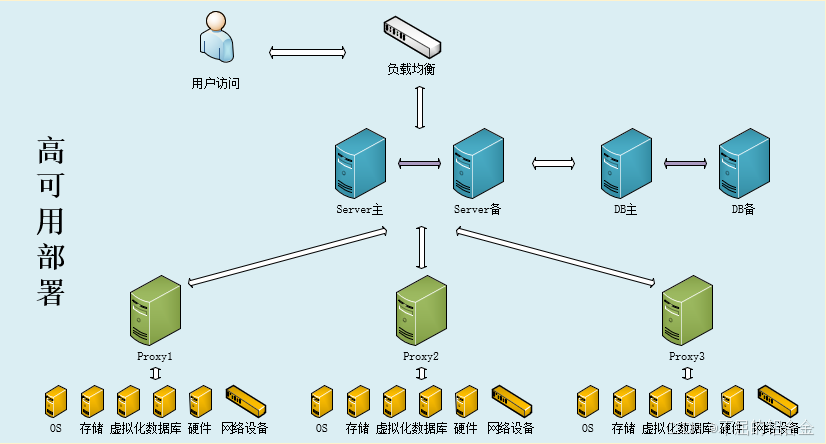
zabbix常见架构及组件
Zabbix作为一个开源的、功能全面的监控解决方案,广泛应用于各类组织中,以实现对网络、服务器、云服务及应用程序性能的全方位监控。部署架构灵活性高,可支持从小型单一服务器环境到大型分布式系统的多种场景。基本架构通常包括监控端…...
plsql表格怎么显示中文 plsql如何导入表格数据
在Oracle数据库开发中,PL/SQL Developer是一款广泛使用的集成开发环境(IDE),它提供了丰富的功能来帮助开发人员高效地进行数据库开发和管理。在使用PL/SQL Developer时,许多用户会遇到表格显示中文的问题,以…...

chromedriver下载地址大全(包括124.*后)以及替换exe后仍显示版本不匹配的问题
Chrome for Testing availability CNPM Binaries Mirror 若已经更新了系统环境变量里的chromdriver路径下的exe,仍显示版本不匹配: 则在cmd界面输入 chromedriver 会跳出version verison与刚刚下载好的exe不匹配,则再输入: w…...

拦截器实现 Mybatis Plus 打印含参数的 SQL 语句
1.实现拦截器 package com.sample.common.interceptor;import com.baomidou.mybatisplus.extension.plugins.inner.InnerInterceptor; import lombok.extern.slf4j.Slf4j; import org.apache.ibatis.executor.Executor; import org.apache.ibatis.mapping.BoundSql; import or…...

Oracle Subprogram即Oracle子程序
Oracle Subprogram,即Oracle子程序,是Oracle数据库中存储的过程(Procedures)和函数(Functions)的统称。这些子程序是存储在数据库中的PL/SQL代码块,用于执行特定的任务或操作。下面详细介绍Orac…...

自然语言处理实战项目30-基于RoBERTa模型的高精度的评论文本分类实战,详细代码复现可直接运行
大家好,我是微学AI,今天给大家介绍一下自然语言处理实战项目30-基于RoBERTa模型的高精度的评论文本分类实战,详细代码复现可直接运行。RoBERTa模型是由 Facebook AI Research 和 FAIR 的研究人员提出的一种改进版的 BERT 模型。RoBERTa 通过采用更大的训练数据集、动态掩码机…...
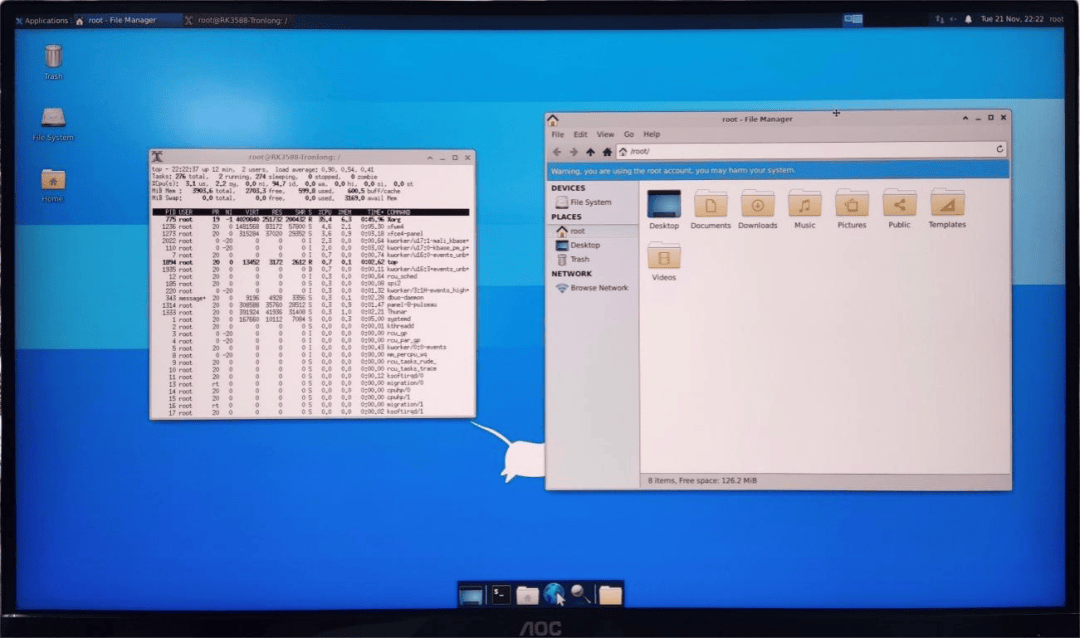
RK3588J正式发布Ubuntu桌面系统,丝滑又便捷!
本文主要介绍瑞芯微RK3588J的Ubuntu系统桌面演示,开发环境如下: U-Boot:U-Boot-2017.09 Kernel:Linux-5.10.160 Ubuntu:Ubuntu20.04.6 LinuxSDK: rk3588-linux5.10-sdk-[版本号] (基于rk3…...
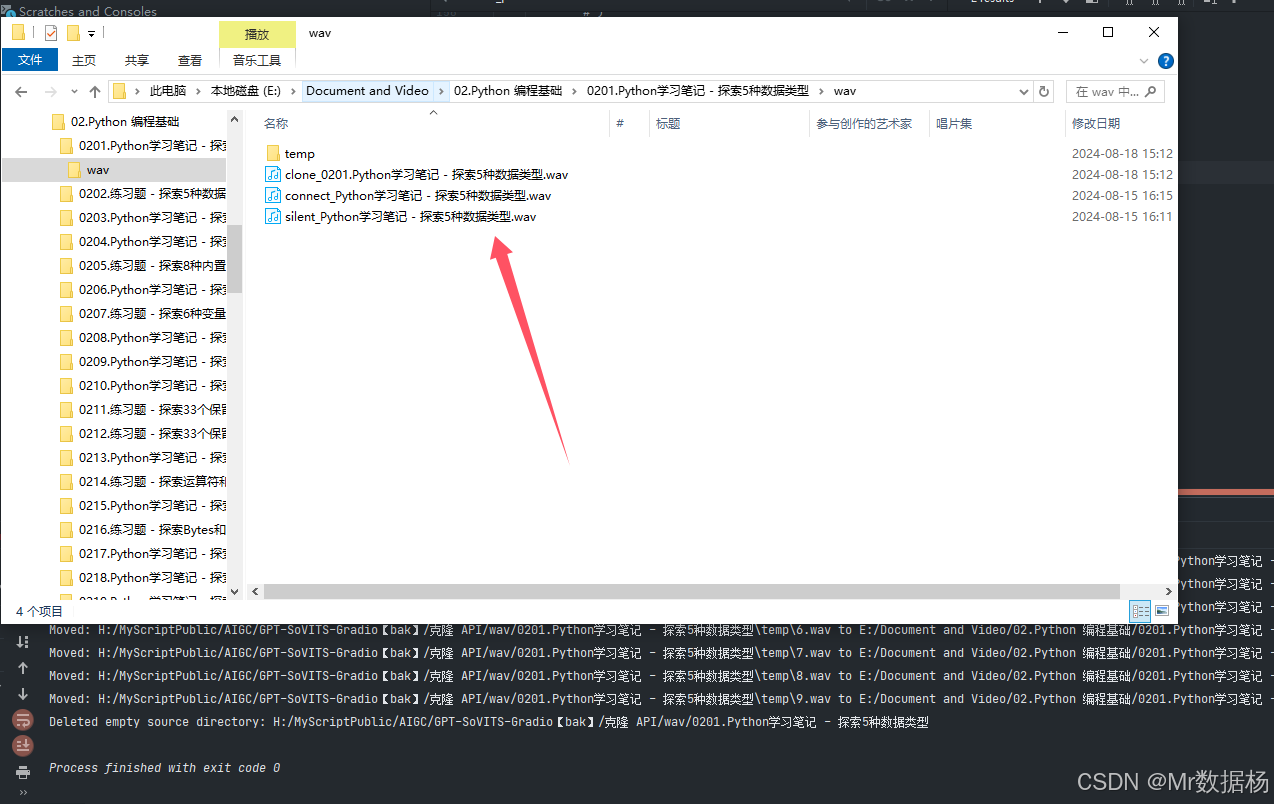
基于GPT-SoVITS的API实现批量克隆声音
目标是将每一段声音通过GPT-SoVITS的API的API进行克隆,因为拼在一起的整个片段处理会造成内存或者缓存溢出。 将目录下的音频文件生成到指定目录下,然后再进行拼接。 通过AI工具箱生成的数据文件是这样的结构,temp目录下是没个片段生成的部分,connect_是正常拼接的音频文件…...
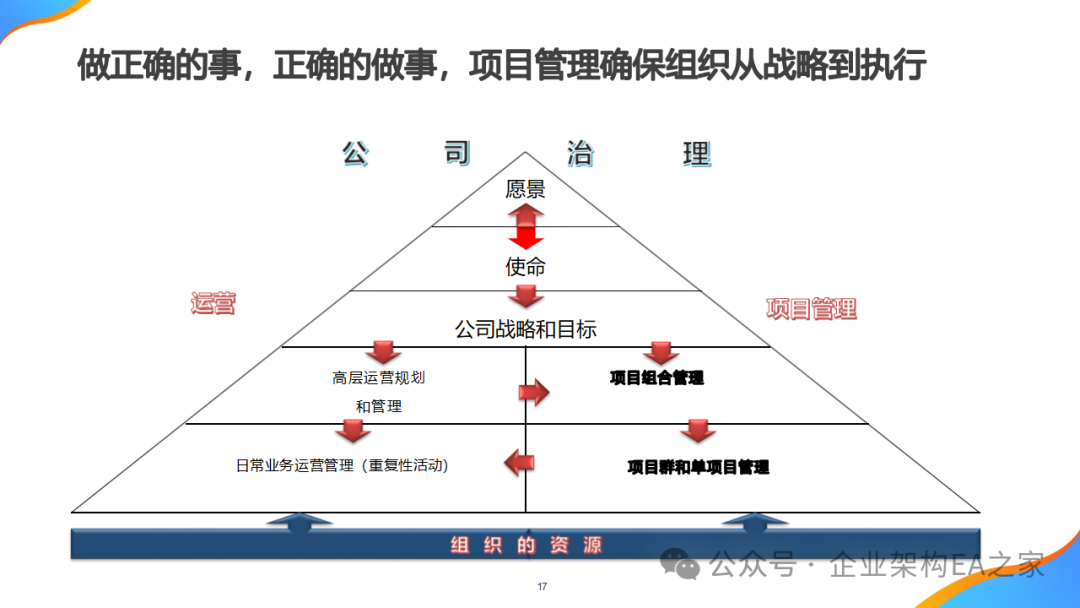
详解华为项目管理,附华为高级项目管理内训材料
(一)华为在项目管理中通过有效的沟通、灵活的组织结构、坚持不懈的努力、细致的管理和科学的考核体系,实现了持续的创新和发展。通过引进先进的管理模式,强调以客户需求为导向,华为不仅优化了技术管理和项目研发流程&a…...
脚本)
Perl(Practical Extraction and Reporting Language)脚本
Perl(Practical Extraction and Reporting Language)是一种非常灵活的脚本语言,主要用于文本处理、系统管理以及快速原型开发等领域。Perl 脚本可以用来执行一系列任务,包括文件操作、网络通信、数据处理等。 下面是一些关于编写…...

单例模式详细
文章目录 单例模式介绍八种方式1、饿汉式(静态常量)2、饿汉式(静态代码块)3、懒汉式(线程不安全)4、懒汉式(线程安全,同步方法)5、懒汉式(线程不安全…...
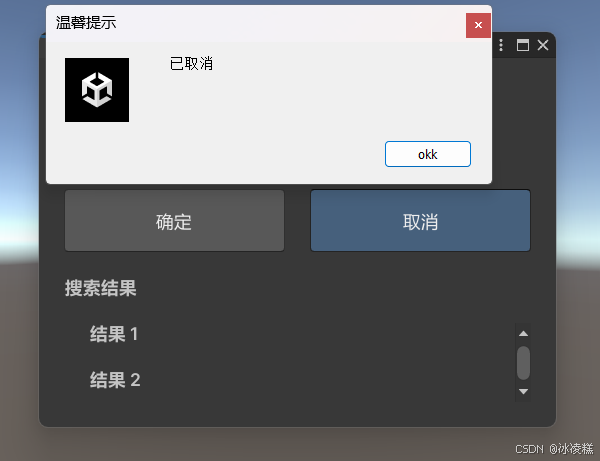
Unity3D 自定义窗口
Unity3D 自定义窗口的实现。 自定义窗口 Unity3D 可以通过编写代码,扩展编辑器的菜单栏和窗口。 简单的功能可以直接一个菜单按钮实现,复杂的功能就需要绘制一个窗口展示更多的信息。 编辑器扩展的脚本,需要放在 Editor 文件夹中。 菜单栏…...
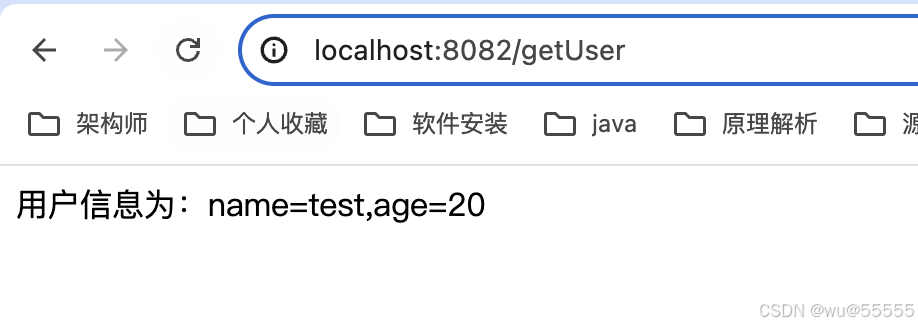
dubbo:dubbo整合nacos实现服务注册中心、配置中心(二)
文章目录 0. 引言1. nacos简介及安装2. 注册中心实现3. 配置中心实现4. 源码5. 总结 0. 引言 之前我们讲解的是dubbozookeeper体系来实现微服务框架,但相对zookeeper很多企业在使用nacos, 并且nacos和dubbo都是阿里出品,所以具备一些天生的契合性&#…...

个人博客指路
Pudding 个人博客 比较懒,直接 github page 了,没国内代理加速。 欢迎大佬们,踩一踩 没做留言,觉得很鸡肋。有问题可以在本文底下评论、或者直接邮件...
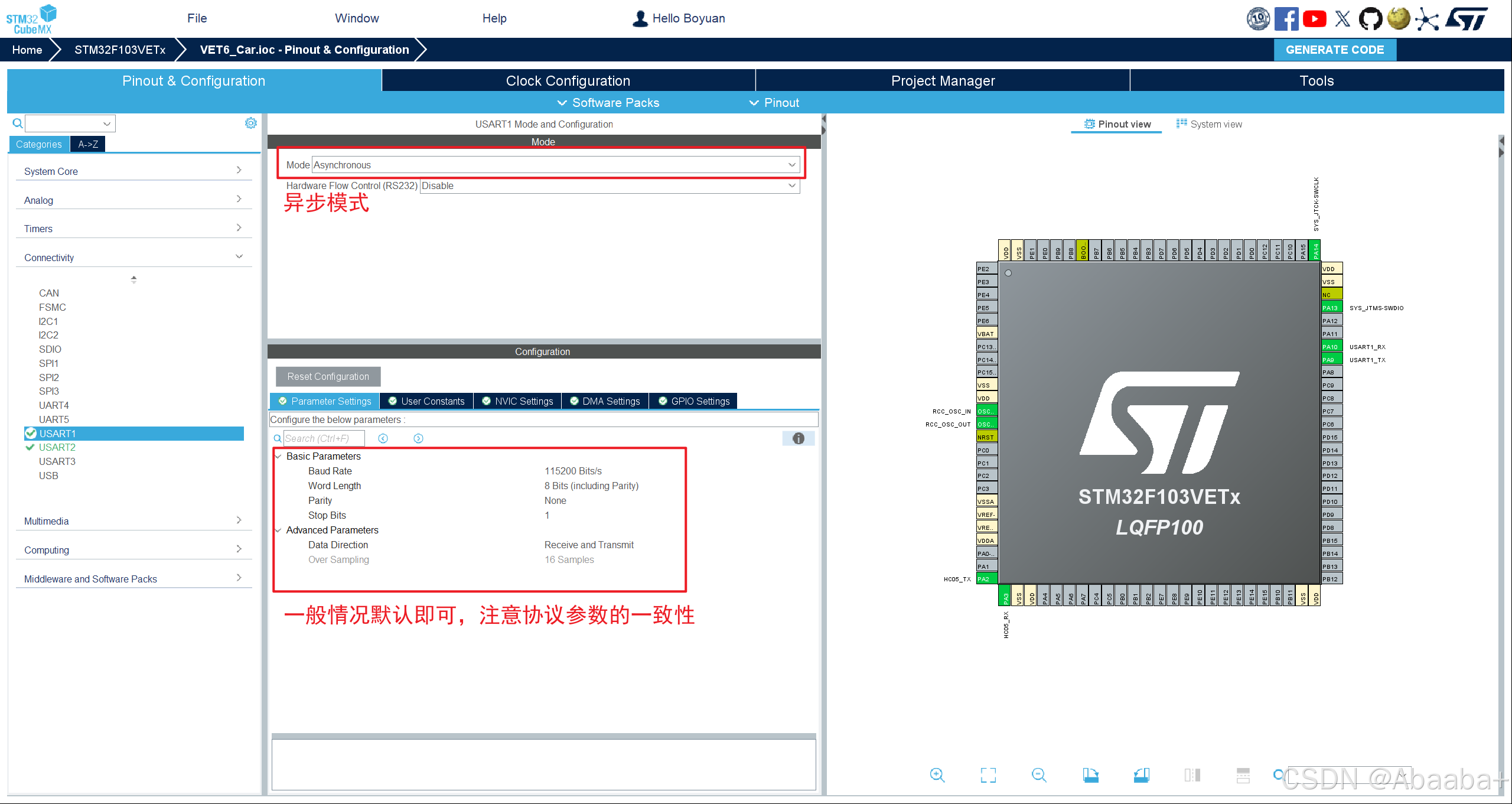
【STM32 HAL】多串口printf重定向
【STM32 HAL】多串口printf重定向 前言单串口printf重定向原理实现CubeMX配置Keil5配置 多串口printf重定向 前言 在近期项目中,作者需要 STM32 同时向上位机和手机发送数据,传统的 printf 重定向只能输出到一个串口。本文介绍如何实现 printf 同时输出…...

帆软报表,达梦数据库驱动上传失败
1、按照正常操作新建数据库连接,上传准备好的达梦驱动时,提示如图一需要修改SystemConfig.driverUpload为true才可以。 2、FineDB存储了数据决策系统中除平台属性配置以外的所有信息。详情请参见: FineDB 数据库简介。 3、因此管理员可通过…...

CSS选择器的优先级是如何确定的?有哪些方法可以提高选择器的效率?
CSS选择器的优先级是如何确定的? CSS选择器的优先级决定了当多个选择器同时应用于一个元素时,哪个选择器将最终生效。CSS选择器的优先级由多个因素决定,主要包括以下几个方面: 特殊性(Specificity) 特殊性…...
)
【MySQL】基础入门(第二篇)
1.MySQL基本数据类型 数值类型 MySQL 支持所有标准 SQL 数值数据类型。 这些类型包括严格数值数据类型(INTEGER、SMALLINT、DECIMAL 和 NUMERIC),以及近似数值数据类型(FLOAT、REAL 和 DOUBLE PRECISION)。 关键字INT是INTEGER的同义词,关键字DEC是D…...

勇闯机器学习(第二关-数据集使用)
以下内容,皆为原创,重在无私分享高质量知识,制作实属不易,请点点关注。 好戏开场了~~~(这关涉及到了加载数据集的代码,下一关,教你们安装机器学习库) 一.数据集 这一关的目标 知道数据集被分为训练集和测…...

使用docker在3台服务器上搭建基于redis 6.x的一主两从三台均是哨兵模式
一、环境及版本说明 如果服务器已经安装了docker,则忽略此步骤,如果没有安装,则可以按照一下方式安装: 1. 在线安装(有互联网环境): 请看我这篇文章 传送阵>> 点我查看 2. 离线安装(内网环境):请看我这篇文章 传送阵>> 点我查看 说明:假设每台服务器已…...

在鸿蒙HarmonyOS 5中实现抖音风格的点赞功能
下面我将详细介绍如何使用HarmonyOS SDK在HarmonyOS 5中实现类似抖音的点赞功能,包括动画效果、数据同步和交互优化。 1. 基础点赞功能实现 1.1 创建数据模型 // VideoModel.ets export class VideoModel {id: string "";title: string ""…...
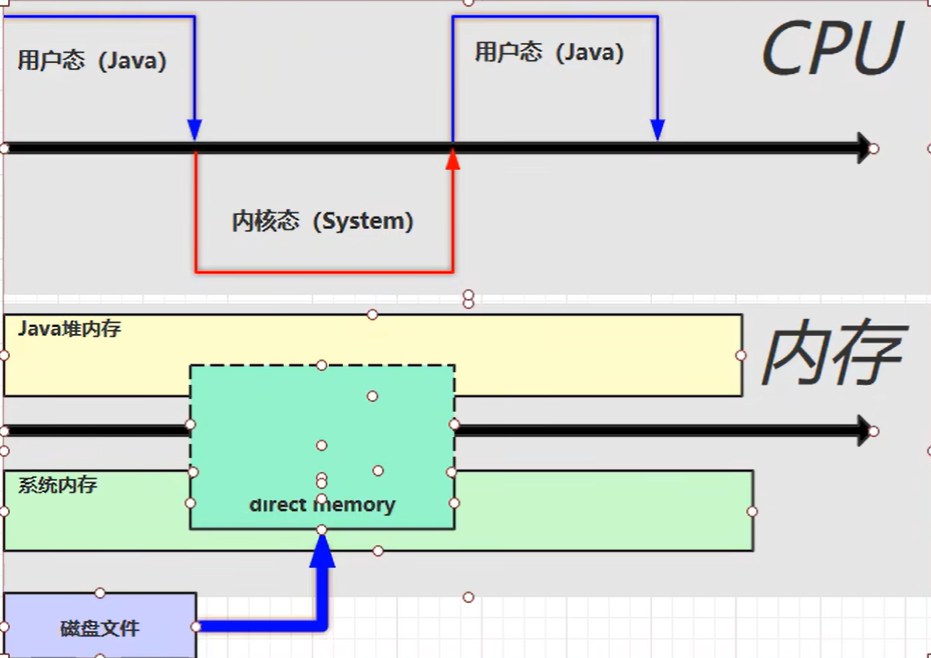
【JVM】- 内存结构
引言 JVM:Java Virtual Machine 定义:Java虚拟机,Java二进制字节码的运行环境好处: 一次编写,到处运行自动内存管理,垃圾回收的功能数组下标越界检查(会抛异常,不会覆盖到其他代码…...

【磁盘】每天掌握一个Linux命令 - iostat
目录 【磁盘】每天掌握一个Linux命令 - iostat工具概述安装方式核心功能基础用法进阶操作实战案例面试题场景生产场景 注意事项 【磁盘】每天掌握一个Linux命令 - iostat 工具概述 iostat(I/O Statistics)是Linux系统下用于监视系统输入输出设备和CPU使…...
)
postgresql|数据库|只读用户的创建和删除(备忘)
CREATE USER read_only WITH PASSWORD 密码 -- 连接到xxx数据库 \c xxx -- 授予对xxx数据库的只读权限 GRANT CONNECT ON DATABASE xxx TO read_only; GRANT USAGE ON SCHEMA public TO read_only; GRANT SELECT ON ALL TABLES IN SCHEMA public TO read_only; GRANT EXECUTE O…...

unix/linux,sudo,其发展历程详细时间线、由来、历史背景
sudo 的诞生和演化,本身就是一部 Unix/Linux 系统管理哲学变迁的微缩史。来,让我们拨开时间的迷雾,一同探寻 sudo 那波澜壮阔(也颇为实用主义)的发展历程。 历史背景:su的时代与困境 ( 20 世纪 70 年代 - 80 年代初) 在 sudo 出现之前,Unix 系统管理员和需要特权操作的…...
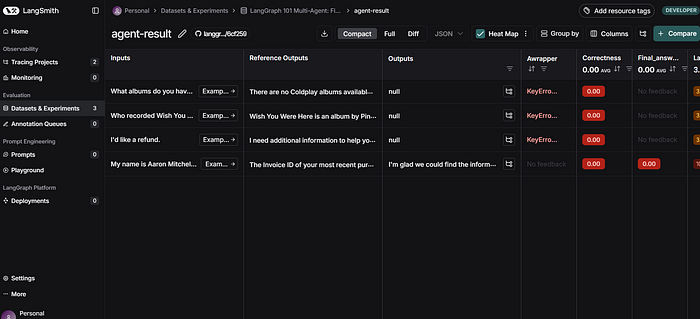
使用LangGraph和LangSmith构建多智能体人工智能系统
现在,通过组合几个较小的子智能体来创建一个强大的人工智能智能体正成为一种趋势。但这也带来了一些挑战,比如减少幻觉、管理对话流程、在测试期间留意智能体的工作方式、允许人工介入以及评估其性能。你需要进行大量的反复试验。 在这篇博客〔原作者&a…...

JavaScript 数据类型详解
JavaScript 数据类型详解 JavaScript 数据类型分为 原始类型(Primitive) 和 对象类型(Object) 两大类,共 8 种(ES11): 一、原始类型(7种) 1. undefined 定…...

基于Java+VUE+MariaDB实现(Web)仿小米商城
仿小米商城 环境安装 nodejs maven JDK11 运行 mvn clean install -DskipTestscd adminmvn spring-boot:runcd ../webmvn spring-boot:runcd ../xiaomi-store-admin-vuenpm installnpm run servecd ../xiaomi-store-vuenpm installnpm run serve 注意:运行前…...

链式法则中 复合函数的推导路径 多变量“信息传递路径”
非常好,我们将之前关于偏导数链式法则中不能“约掉”偏导符号的问题,统一使用 二重复合函数: z f ( u ( x , y ) , v ( x , y ) ) \boxed{z f(u(x,y),\ v(x,y))} zf(u(x,y), v(x,y)) 来全面说明。我们会展示其全微分形式(偏导…...
